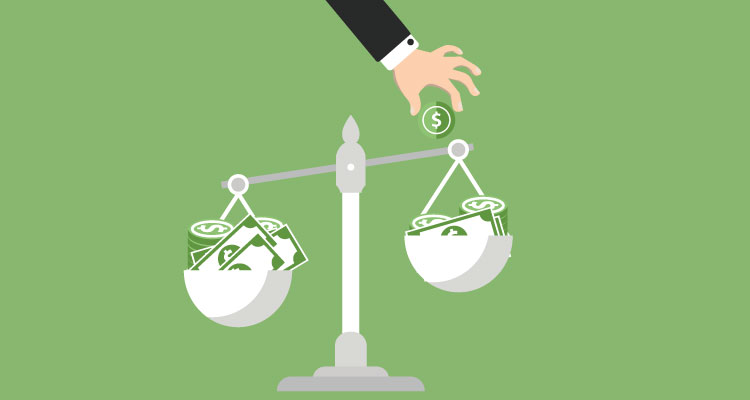When money is tight and you’re focused on beefing up your savings, the last thing that you want to do is spend more money. However, there are circumstances when spending money can actually help you save money in the long-run, like in the following six examples.
Table of Contents
ToggleQuality Over Quantity
As any wealthy individual knows, there’s a difference between being frugal and cheap. As T. Boone Pickens has said, “I don’t go cheap on anything, but I’m not a shopper. If I want something, I look at it, decide what it is, but it will usually be the best product. I’ve got a pair of loafers that I still wear that I got in 1957.”
Whether if it’s furniture, clothing, shoes, or appliances, there are times that being too budget conscious can end up costing you more money in the end. When you skimp on quality these products will either wear out quickly or they just don’t do a great job. This means that you have to keep replacing them, which isn’t an effective method of saving money.
In short, don’t go cheap. Picking quality over quantity is ultimately the best way to stretch your dollar.
Investing in Formal Education
I’ll be honest, formal education isn’t for everyone. Sometimes you can have an idea or passion that can become a successful business idea – no matter what age you are. However, studies, such as one from the Labor Department statistics by the Economic Policy Institute in 2014, have found that Americans with four-year college degrees made 98 percent more an hour on average than people without a degree in 2013. That was an increase from 89 percent from five years earlier.
Paying Off Your Credit Card Debt
Credit cards, when used responsibly, can help improve your credit score so that you can eventually purchase a home or start a business. They also come with perks like cash back and rewards, such as earning frequent flyer miles. But, when you make the monthly payment each month you end up paying hundreds or even thousands of dollars in interest. For example, if you have a $3,000 credit card balance with a 15% APR and make the monthly minimum payment of $60 you’ll end up paying over $400 a year in interest.
To avoid interest, pay your credit card balance in full each month, or least make more than the minimum amount each month. As a rule of thumb, if you don’t have the money to purchase something in cash, then don’t put it on your credit card.
Maintenance and Upgrading
For your most expensive purchases, like your car or house, you can save money by investing in maintenance and upgrading these items. For example, if you’re a homeowner you should repaint your home to prevent having to replace siding that has become too weathered to repair. You should also When it comes to your automobile, if you fail to change your car’s oil or postpone any other scheduled maintenance items, then you may have to worry about expensive repair bills down the road. So to protect your largest purchases, it makes sense to spend a little money over time on proper
Additionally, don’t forget to upgrade or update your older appliances. For example, purchasing a new Energy Star-qualified refrigerator could save you anywhere from $50 to $150 annually in energy costs. The same is true in properly insulating your home and installing more efficient heating, ventilating and air-conditioning, or HVAC, units, which could
Renting vs. Owning
In some situations, renting makes sense, like when renting a car or home during a business trip or family vacation and if you have a variable income.
However, for the day-to-day rentals, like your internet modem in your home or credit card terminal at your business, you’ll pay anywhere from $10 to $100 per month in rental fees. These items could have just been purchased for just a couple of hundred dollars.
Being Charitable
Volunteering and spending money on other’s have been found to make you happy, as well as improve your health. Poor health, which leads to chronic diseases, costs an estimated $5,300 per person in the U.S. each year. To reduce these health care costs, make sure that you diet, exercise, reduce stress, and give back to others.












